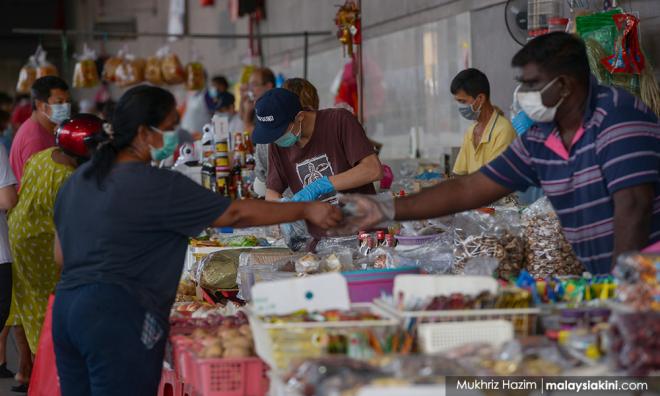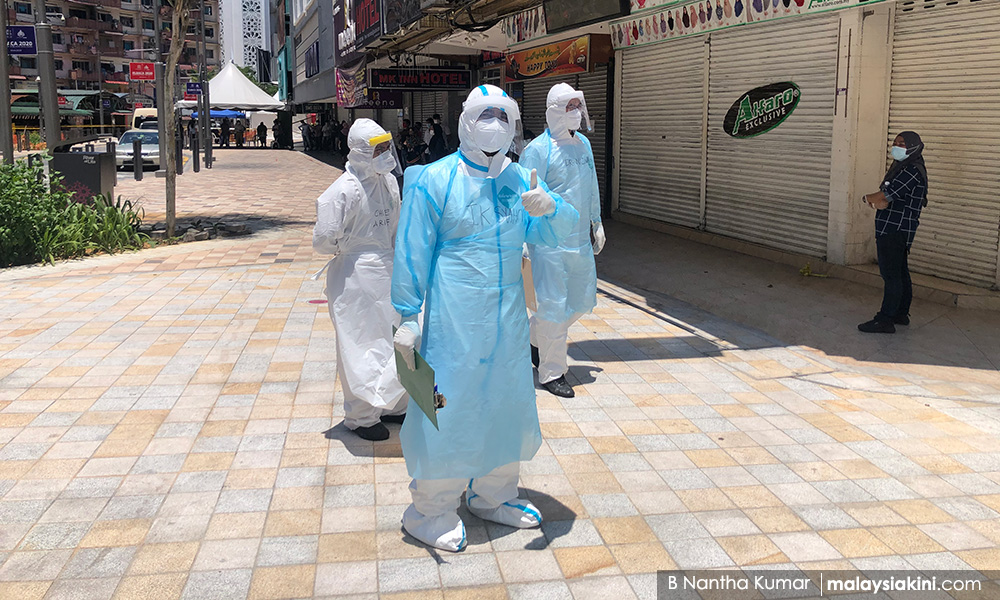Why do we treat essential workers so badly

They are called essential workers because we cannot do without them.
Even when the crisis has forced us to stop, the essential workers cannot stop. Our groceries must still be restocked. Our waste must still be collected. Our parcels must still be delivered. Our hospital beds’ linens must still be changed. Our public spaces must still be cleaned.
We call them "heroes" and pour our appreciation to them on every billboard, but they are still one of the most undervalued and underpaid groups in the country.
When we have the option to stay home to work, they do not have a choice but to be exposed to high risk of coronavirus since March’s lockdown.
Cashiers, collectors, cleaners
A grocery store cashier faces families, elderly, babies, pregnant women who pass through her counter. They do not know who did not observe social distancing, who forgot to use a hand sanitiser, and who came into contact with a coronavirus patient. They have to touch every item customers push to them and hope they are lucky to come out healthy.
A waste collector comes into contact with hazardous materials unknowingly. They will never know what is inside some containers – their job is to pick them up at hospitals, grocery stores, and every house. They just have to keep collecting what people throw away.
A cleaner has to clean these public places without knowing the medical history of the people who walked through them. They do not know who is careless or who is infected, and they just have to put themselves in front of the waste and clean them every day.
Many essential workers face acute anxiety because of the added health risk throughout this period. The worst part of this is that they do not have a choice. Living from paycheck to paycheck means that they could not afford to take paid leaves – assuming they were offered in the first place. Even if they could, they would not take it because the risk of being fired is too high.
In an economy where more than half a million people are jobless, they would rather be exposed to coronavirus than to be jobless.
Easy to hire and fire
Economists have tried to explain the precarious position of essential workers through the simple theory of supply and demand. Since most of the essential work does not require high education credentials or certification, the barrier of entry is low. That means the supply of workers for these jobs is high, so employers could easily hire and fire them as they wish. Replacing essential workers is not hard.
The general imbalance of power between the employers and employees meant that not only are essential workers paid poorly, they are also put in poor work conditions with little opportunity of bargaining a better deal for themselves.

Most of all, they are also deprived of a social safety net, because they are either contract workers or they are exploited by irresponsible employers who do not pay for their social security, pension fund, or insurance.
If we observe closely, the hardest hit essential workers are also disproportionately women and immigrants – two groups of people who already face pre-existing systemic unfairness. Women undertake most of the care work done during the MCO period like taking care of Alzheimer’s and dementia patients at the hospice, nurses, or domestic violence support centres. Care work of this nature of often forgotten and underpaid, making their struggles worse and hidden.
For immigrants, not only do they suffer intense discrimination, but they are also often under exploitative visas or undocumented status, and this exposes them to precarious working conditions, poorer health and finances.
We do not worship true heroes
Strangely, the people we need the most in times of crisis are also the exact people we treat the worst. We admire millionaires and celebrities, and we are willing to pay them half our salary, but we are not willing to bat an eye on the plight of the essential workers.
Giving essential workers our applause or gratitude is not enough. We need systemic changes to change how we view their jobs that kept us going. We shouldn’t have to debate and regress on a straightforward minimum wage policy; we shouldn’t have to hesitate to provide better work conditions for our workers; we shouldn’t have irresponsible employers who escape their legal obligations of paying employee benefits.
Essential workers are not treated poorly because a simplistic economic theory says no. There is no economic theory that says nurses or grocery store workers must be paid dirt cheap for what they do. Essential workers are poorly treated because we made those jobs that way.
When we resume our working lives again, I hope we do not forget who the essential workers were who kept us going.
JAMES CHAI is a legal consultant and researcher working for Invoke, among others. You may reach him at jameschai.mpuk@gmail.com. - Mkini
✍ Credit given to the original owner of this post : ☕ Malaysians Must Know the TRUTH
🌐 Hit This Link To Find Out More On Their Articles...🏄🏻♀️ Enjoy Surfing!



















Post a Comment